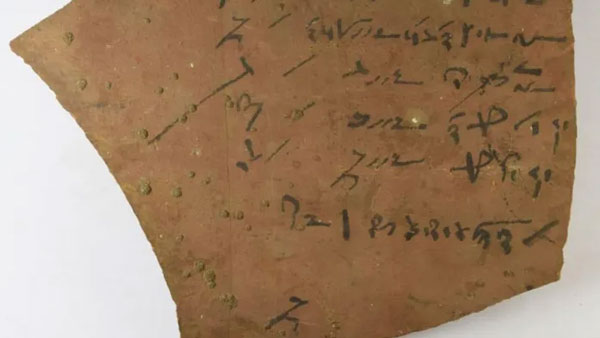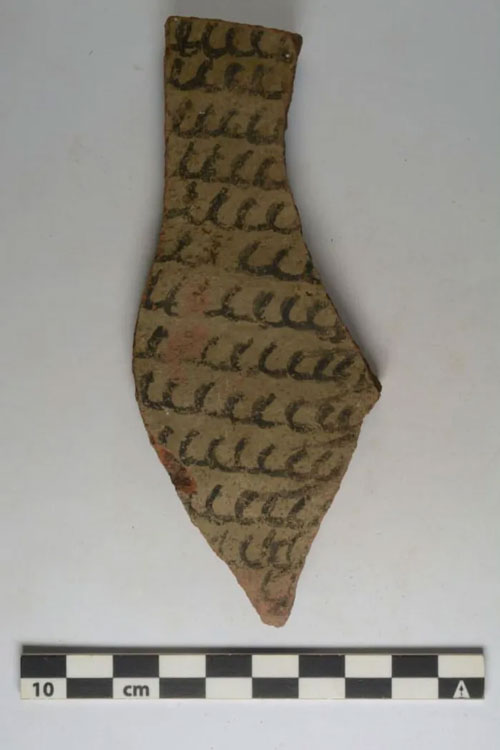Antiquities reveal the punishment for students who commit mistakes in ancient Egypt
Archaeologists have discovered 18,000 ceramic fragments engraved with details of life in ancient Egypt. These artifacts also reveal the punishment for bad students 2,000 years ago.

One of the ancient pottery shards unearthed. Photo: CNN
CNN channel (USA) said that these 2,000-year-old pottery pieces include writing with commercial content, receipts, teaching content.
Researchers at the University of Tübingen (Germany) are the unit that excavated these artifacts at Athribis, an ancient settlement 200 km north of Luxor city.
These pieces of pottery, known as "ostraca", are the remains of pots or jars that the ancient Egyptians used as writing materials. They used reeds or hollow sticks to write on these jars or jars.

Many ceramic pieces have the same symbol written on the front and back.
Professor Christian Leitz, who led the research, said many of the pieces of pottery came from an ancient school. 'There's a list of months, numbers, grammar exercises, arithmetic problems and the bird alphabet with each letter attached to the bird whose name starts with that letter,' Mr Leitz said.
In addition, hundreds of ceramic pieces also have repeating symbols on the back and front. Archaeologists think this is evidence that bad students were punished to write these words many times.
According to the University of Tübingen, detecting such a large amount of 'ostraca' is rare. Located near the city of Sohag on the west bank of the Nile, Athribis has been the site of excavations for more than 100 years. But intensive research has been underway in this 30-hectare site since 2003 when the University of Tübingen and the Egyptian Ministry of Tourism and Antiquities jointly launched the Athribis project.
- Cruel punishments of ancient Egyptians
- For the first time the treasure of submerged Egyptian artifacts is
- Egypt discovered an ancient stone church of nearly 4,000 years old
- Assuring a punishment for adultery women in ancient times
- Discover hundreds of 6,000-year-old mummies in 7 Egyptian catacombs
- Egypt discovered the ruins of the ancient city of Memphis
- Egypt discovered tombs from ancient Rome
- Egypt discovered dozens of ancient mummies
- Discovered a large tomb in ancient cemetery in Egypt
- Homosexuality in ancient Egypt
- Learn the disasters that destroyed ancient Egypt
- 6 things we do not know about the people of ancient Egypt
 Discovered an ancient centipede fossil 99 million years old
Discovered an ancient centipede fossil 99 million years old Discovered bat-like dinosaurs in China
Discovered bat-like dinosaurs in China Discovered a 200-year-old bronze cannon of the coast
Discovered a 200-year-old bronze cannon of the coast Discover 305 million-year-old spider fossils
Discover 305 million-year-old spider fossils